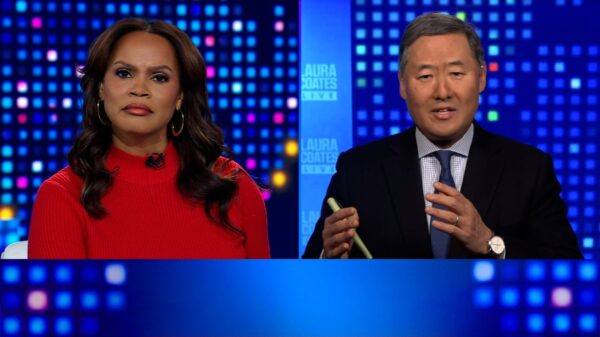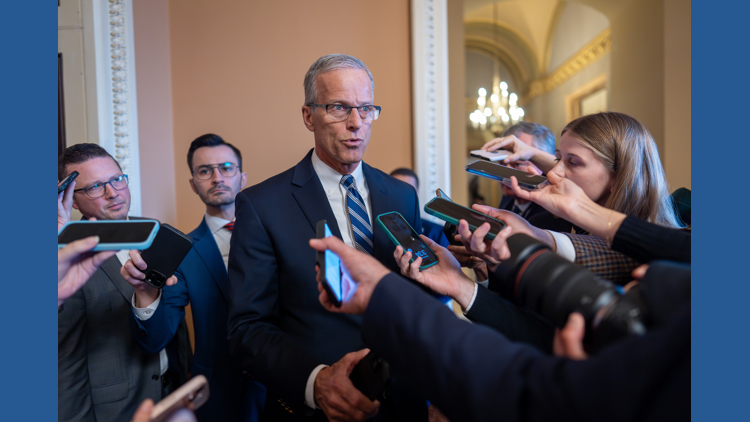Senators are working through the weekend to resolve the ongoing government shutdown, which has now lasted for over 39 days. This unprecedented situation has left government workers unpaid, disrupted air travel, and delayed crucial SNAP benefits for millions of Americans. As negotiations intensify, the path to a bipartisan agreement remains unclear.
The weekend session began on November 4, 2023, as Republican and Democratic leaders continued to clash over key issues. On Friday, Senate Democratic Leader Chuck Schumer‘s proposal to reopen the government and extend health care subsidies for a year was dismissed by Republican leaders, with John Thune labeling it a “nonstarter.” Republicans are facing pressure from their constituents to address the situation, yet they have resisted Democratic calls for negotiations on extending Affordable Care Act tax credits that are set to expire at the end of the year.
Despite the growing urgency, some Republican leaders have indicated a willingness to consider an emerging proposal from a coalition of moderate Democrats. This plan would facilitate the reopening of the government in exchange for a future vote on health care measures. Leading these discussions, New Hampshire Senator Jeanne Shaheen emphasized the need for an alternative route forward after the rejection of Schumer’s offer. “We’re working on it,” she stated.
As party leaders remain at an impasse, the group of moderate Democrats continues to negotiate among themselves and with some Republicans. Their ongoing discussions revolve around a series of spending bills aimed at funding critical government functions, such as food assistance and veterans’ programs, while extending funding for other areas until December or January. The proposed spending measures are the result of bipartisan negotiations that have persisted throughout the shutdown, yet the agreement hinges on the promise of future health care discussions.
Republican leaders contend they only require five additional votes from Democrats to fund the government, with the negotiating group comprising between 10 to 12 Democratic senators. Some Republicans have shown openness to extending COVID-19-era tax credits, acknowledging the potential for skyrocketing premiums for millions of Americans. Mike Rounds, a senator from South Dakota, shared that “we have had really good discussions with a lot of the Democrats.”
Meanwhile, former President Donald Trump has urged Republicans to swiftly conclude the shutdown and eliminate the legislative filibuster, which currently necessitates 60 votes for most legislation in the Senate. “I am totally in favor of terminating the filibuster, and we would be back to work within 10 minutes after that vote took place,” Trump stated. However, Republican leaders have largely rejected this suggestion, with Thune focusing instead on a bipartisan solution that aligns with the proposals laid out by moderate Democrats.
The situation remains precarious, as the current funding bill only extends government operations until November 21, 2023, a deadline that is fast approaching after weeks of inaction. A pivotal test vote on new legislation could emerge in the coming days if Thune decides to proceed. This would force Democrats to make a critical decision: continue advocating for a robust health care deal that extends subsidies set to expire in January, or agree to reopen the government while relying on Republicans’ assurance of a future vote on health care issues.
Following a caucus meeting, many Democrats indicated their intention to maintain pressure on both Trump and Republican leaders to engage in negotiations. Senator Brian Schatz from Hawaii remarked that while Democrats are “obviously not unanimous,” the lack of a health care guarantee makes a successful vote unlikely. Independent Senator Bernie Sanders, who aligns with Democrats, emphasized the importance of standing firm after the recent electoral victories, urging that voters “cast their vote against Trumpism” and expect Democrats to secure a robust extension of health care subsidies rather than merely a promise for a vote.
As negotiations continue, the implications of this shutdown are deeply felt across the United States, affecting millions of individuals and families who rely on government services. The urgency for a resolution grows, and the choices made by lawmakers in the coming days will significantly impact the lives of many Americans.






































































